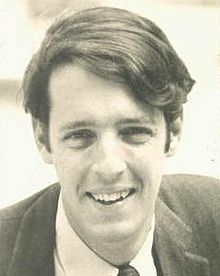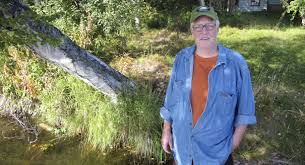|
Sometimes a person is revealed in the chords as well as the relationships.
There was a memorial for Joe McGinniss in New York on Friday, two months after he passed at the age of 71. Friends and family told their stories, revealing a man of vastly eclectic interests and ties. Roger Ailes, the brains behind Fox, told of a warm friendship that went back to 1968, when McGinniss, a kid of 26, wrote “The Selling of the President.” They did not fight over politics, Ailes said. They just enjoyed each other’s company. Others of the liberal persuasion told how McGinniss could write about Ted Kennedy or Sarah Palin with equal tenacity. And Ray Hudson, the garrulous English soccer broadcaster, who does La Liga of Spain, popped in from south Florida to talk about his friend, who maintained he was actually Italian despite a name and a face that insisted he was surely not. The four McGinniss children were very sweet with their memories and emotions. And one of the best stories came from Joe’s lawyer, Dennis Holohan, who told of not being able to even speak of his military service in Vietnam for 20 years afterward. McGinniss had been one of the great American journalists like David Halberstam and Gloria Emerson and Mike McGrady who went there and exposed the mission for the tragic fraud it was. Finally, Joe cajoled Holohan into joining Joe on a trip to modern Vietnam. They took different routes from Hanoi to Ho Chi Minh City/Saigon, and the lawyer arrived first, taking a taxi tour of a war museum and then a Buddhist temple, where he totally lost it. Meltdown. But his driver consoled him, saying the Vietnamese people had moved on. You’re a good man, Minh said. I can tell. You need to get past it. When McGinniss caught up with Holohan in Saigon, the lawyer told his friend what had happened at the temple with the taxi driver. McGinniss said he knew it would happen. That was why he proposed the trip. The friend is still stunned that his friend could anticipate such a breakthrough. I never met Joe McGinniss but we became email pals two decades ago, united by our love of Italian calcio and Roberto Baggio and the language and the daily pace of Italian life. I am never jealous of other people’s talent or success or dedication or great ideas but I was tanto geloso of the time he spent in a hill town, and the book he wrote about a scandal among minor-league players he knew. I got to know Joe McGinniss better from the music his family selected for the memorial:
And at the end, there was a slide show of Joe McGinniss’ life, frolicking with his children, out and about in the world, thoroughly engaged, enjoying himself immensely. The background music was:
That’s how I got to know somebody I never met. Addio, buon amico.
Dennis Holahan
5/14/2014 08:54:22 am
George: Thank you so much for mentioning my comments about Joe. He helped my so much. I want the world to know that about him. Best regards, Dennis Holahan
George Vecsey
5/16/2014 12:40:00 am
Dear Dennis: I'm sorry I didn't get to say hello at the end. Your talk was wonderful. 5/15/2014 08:55:10 am
George
George Vecsey
5/16/2014 12:41:56 am
Thanks, man. Comments are closed.
|
Categories
All
|











